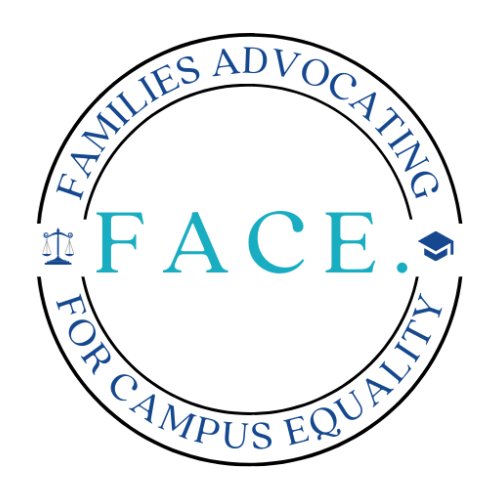Parent of an accused student who was exonerated following a long unbalanced process:
My son John Doe was charged by an ex-girlfriend with misconduct, and exonerated -- completely and unanimously -- by the hearing panel. The accuser was a deeply troubled young woman (drug overdoses, psychiatric hospitalizations, fantasy rape claims, etc.) who - 5 months after the fact and 3 months after their relationship ended - accused John Doe of attempting to go slightly farther than they'd gone before (though stopping when she asked him to), an act that she apparently did not find too horrifying as she remained in his bed for the remainder of the night and continued to sleep with him for the ensuing month; her claim was filed only after mutual friends reported that he'd found a new girlfriend. At the hearing she conceded that he'd asked for consent and she'd granted it, and that he'd stopped immediately when she thereafter asked him to - a fact that would have been nice to know but apparently was never asked by the university's investigator.
1) We were confronted on a daily basis with illogic that literally took my breath away. For example, how can it be that when the charges (and their potential consequences) are more serious, the protections to the accused are reduced? We describe the experience as a combination of Kafka, Lewis Carroll and the Army-McCarthy hearings, and we are dead serious.
2) The institution had no clue about fact-finding; the work conducted by the young, 20-something in- house "investigator" would have been D minus work in a Junior College classroom, and the whole concept of using an inquisitorial method of fact-finding rather than advocacy-based efforts is rather arrogant in the face of 400 years of jurisprudence that shows that the former doesn't get accurate results.
3) The complete indifference to the overall well being of the accuser. Before he had any clue the complaint would be filed, John contacted the student counseling office about her stalking him, not out of hope of getting the young woman sanctioned but from to see that she got help, as she was only two weeks removed from a stay in a local psychiatric hospital after her third drug overdose in as many months. However, as soon as she filed her charge, his concern was dropped and they proceeded to treat the matter simply as a criminal-type complaint and apparently did not try to work through her problems.
4) A complete disregard for the accused's emotional health, as the student counseling office made no attempt to find some assistance notwithstanding assurances made to his parents that they would do so. It was clearly a result of a complete lack of any filtering mechanism to weed out even the most far- fetched of claims - the school made it clear that the accuser was entitled to take the matter all the way through to a hearing (and of course with the 'no mediation' rules of the OCR, they couldn't even ask her if she wanted to) even if the claims as stated did not constitute a breach of the rules.
5) Absolute secrecy in the investigative process, and so we had to spend thousands of dollars in investigator time to try to gain background information as we had no clue as to what the in-house guy was looking into (which, as it turns out, wasn't much, including the accuser's history of false rape charges). We also were refused information as to what kind of training either the investigators or hearing panelists received - which is of course a huge issue in that much of the training (e.g., from NCHERM) is based on the 'believe the accuser' bias that permeates the entire sexual misconduct industry.
6) Protection of the institution's own 'reputation', with myriad rules designed to make sure that no one (not even the hearing panelists) could look into what the investigators had done or whether their efforts were appropriate or sufficient.
7) Inability of the accused to independently present evidence - e.g., the statements we procured from the accuser's friends that contradicted her charges were not given directly to the hearing panel, but were "summarized" in the investigative report, which was not corrected even when we pointed out discrepancies between the statements and the summaries.
8) Similarly, even though the accuser admitted that she'd been sufficiently sober (her drinking had stopped many hours before she came to John Doe’s room) to have her wits about her, the school would not take the issue of "incapacitation by intoxication" off the table, but still wouldn't let John present the report or testimony of any toxicologist. (BTW, the letter denying our request to present certain witnesses - including a toxicologist - was sent out at 11:30 p.m. the night before the hearing began.)
9) Rampant conflicts of interest - the two investigators had been involved in (a) the intake process (and apparently had failed to advise the accuser that, if she didn't want to see John, she could get a "stay away" order even without filing a complaint and thus may have induced her filing of it), and (b) counseling John Doe before their appointment as investigators, thus leading to the misuse of what he envisioned to be confidential communications.

